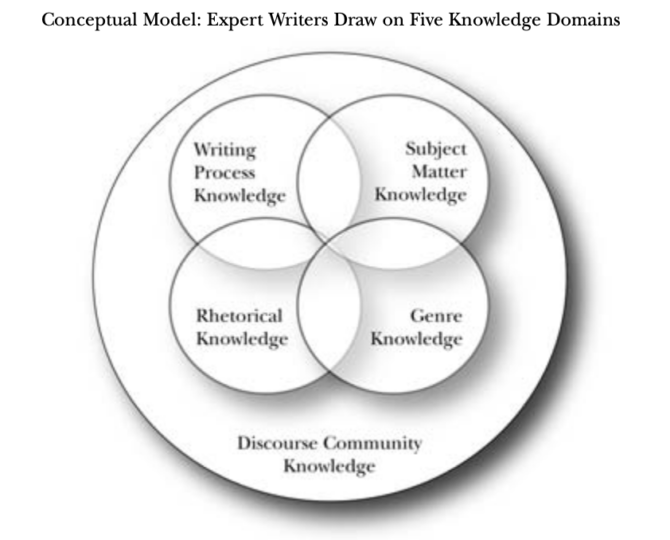The core writing curriculum at Mason offers students a unique opportunity to develop writing competencies across their educational experience that prepares them to participate in academic, professional, and civic communities. It does so in part by providing students with a “vertical” writing curriculum: a carefully sequenced series of courses designed to facilitate the long-term growth of writers as they develop expertise in the production and circulation of knowledge across a range of contexts and audiences. This curriculum grows out of research demonstrating that people continue to develop as writers throughout their lives and, therefore, that writing instruction should be continuous throughout students’ education.
The Core Writing Curriculum

At Mason, our vertical writing curriculum is realized through specially designated Composition and Writing-intensive (WI) courses that seek to integrate rhetorical and field-specific knowledge and skills.
- In First-Year Composition (English 100/101/121-122), students learn to see writing as a social, rhetorical act and are taught to effectively analyze and respond to a variety of writing situations in academic and non-academic contexts through analyzing, researching, and producing texts of varying genres that engage a range of audiences.
- Advanced Composition (English 302) builds on student learning in ENGH 100/101/121-22 through advanced rhetorical analysis, research, and writing oriented toward investigating, engaging with, and responding to meaningful disciplinary questions in a variety of academic and non-academic contexts.
- Writing-intensive courses, which are situated in the majors, more fully integrate rhetorical and field-specific knowledges as students engage the specific writing, critical thinking, and problem-solving methods across a range of academic, professional, and civic contexts in their chosen fields.
Conceptual Model
Beaufort’s (2007) model of writing expertise (pictured above) helps to explain this curriculum. In English 100/101/121-122, students learn the basic foundations of rhetorical, genre, and writing process knowledge as they develop research-based projects for academic and non-academic contexts. English 302 extends these lessons and begins to introduce students to discourse community knowledge through inquiry-based disciplinary research projects. Writing-intensive courses, which are situated in the majors, most fully integrate these knowledges as students develop their subject matter knowledge and more deeply engage the specific writing, critical thinking, and problem-solving methods in their chosen fields.
Writing-enriched Experiences
It is important to recognize, however, that students frequently write in courses outside of this core curriculum. In fact, a recent review of Mason Core syllabi revealed that 77% of them indicated some type of writing assignment. These writing-enriched courses provide opportunities to reinforce and extend the learning explicitly targeted in composition and writing-intensive courses. To do so, faculty should recognize the writing present in their courses, talk explicitly about the purposes of and expectations for these assignments, and offer students opportunities to reflect on their writing experiences, particularly noting similarities and differences between assignments, courses, and disciplines. Furthermore, departments should consider threading sequences of writing experiences that foster the gradual development of disciplinary writing competencies.
The Mason Graduate
Taken as a whole, this curriculum contributes to the development of the Mason graduate as articulated in the university’s vision statement so that students acquire the literacies and rhetorical competencies necessary to becoming engaged citizens and well-rounded scholars who are prepared to use writing to accomplish change in the world.
Further Reading
Hall, J. (2006). Toward a unified writing curriculum. Integrating WAC/WID with freshman composition
Melzer, D. (2014). The connected curriculum: Designing a vertical transfer writing curriculum
Williams, A. & Balzotti, J. (2019). Threading competencies in writing courses for more effective transfer
